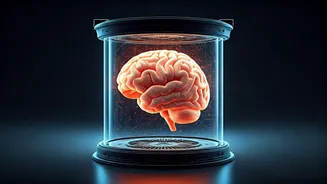Mind-Boosting Exercises
The concept of brain aging is a growing concern, but the good news is that mental exercises can provide a pathway to cognitive health. Cognitive exercises are
designed to enhance various mental processes, including memory, focus, and problem-solving abilities. Numerous studies have indicated that by engaging in these types of activities, individuals can potentially slow down or reverse age-related cognitive decline. This approach encourages consistent mental engagement, promoting neuroplasticity, which is the brain's ability to reorganize itself by forming new neural connections throughout life. Incorporating mental exercises into daily routines can lead to noticeable improvements in cognitive abilities, and overall brain health.
Memory Games
Memory games play a pivotal role in strengthening cognitive functions, primarily focusing on memory enhancement. These games often involve tasks that require remembering sequences, patterns, or items, which in turn challenges the brain's ability to encode, store, and retrieve information. Engaging in memory games regularly can significantly improve recall capabilities. Types of memory games that can be tried include those that involve matching pairs, following a sequence of instructions, or recalling details from a story. These games not only stimulate memory but also boost attention span and concentration. The challenge and reward of memory games provide continuous stimulation for the brain, promoting the growth of new neural pathways and enhancing overall cognitive performance.
Puzzle Solving
Puzzle-solving exercises offer a fantastic means of sharpening critical thinking skills and boosting cognitive abilities. These puzzles, including crosswords, Sudoku, and jigsaw puzzles, challenge the brain to analyze information, identify patterns, and strategize solutions. The process of solving a puzzle demands focus, patience, and analytical skills, which contribute to improved mental agility. Regularly engaging in puzzle-solving activities can enhance problem-solving abilities and improve the brain's capacity to process complex information effectively. The challenges presented by puzzles help the brain develop better adaptability and resilience, improving its capacity to deal with difficult situations. This exercise promotes cognitive flexibility and strategic thinking, fostering an active and engaged mind.
Learning New Skills
Acquiring new skills presents a direct way to expand cognitive capacity and foster brain health. Learning a new language, mastering a musical instrument, or taking up a new hobby can stimulate brain activity in various ways. When the brain is presented with new tasks, it creates fresh neural connections, which is key to enhanced cognitive performance. The process of acquiring new skills engages different areas of the brain, improving memory, attention, and executive functions. This not only increases cognitive skills, but also helps to establish new levels of self-confidence and a more positive view of life. This can act as a catalyst for new thinking and the development of skills. The process makes the brain more flexible and adaptive.
Mindfulness & Meditation
Mindfulness and meditation practices provide a powerful approach to enhancing cognitive functions by increasing focus and reducing stress. Regular meditation helps to train the brain to concentrate on the present moment, improving attention span and decreasing mind wandering. This practice enhances the brain's ability to filter out distractions, leading to better cognitive control. Reducing stress is another benefit, as chronic stress can impair cognitive performance. Mindfulness practices help to regulate the body's stress response, providing an environment that fosters improved cognitive function. Meditation increases activity in brain regions associated with attention and self-awareness, which improves mental performance and promotes emotional wellbeing. This holistic approach supports the mental clarity and emotional balance needed for optimal cognitive health.













